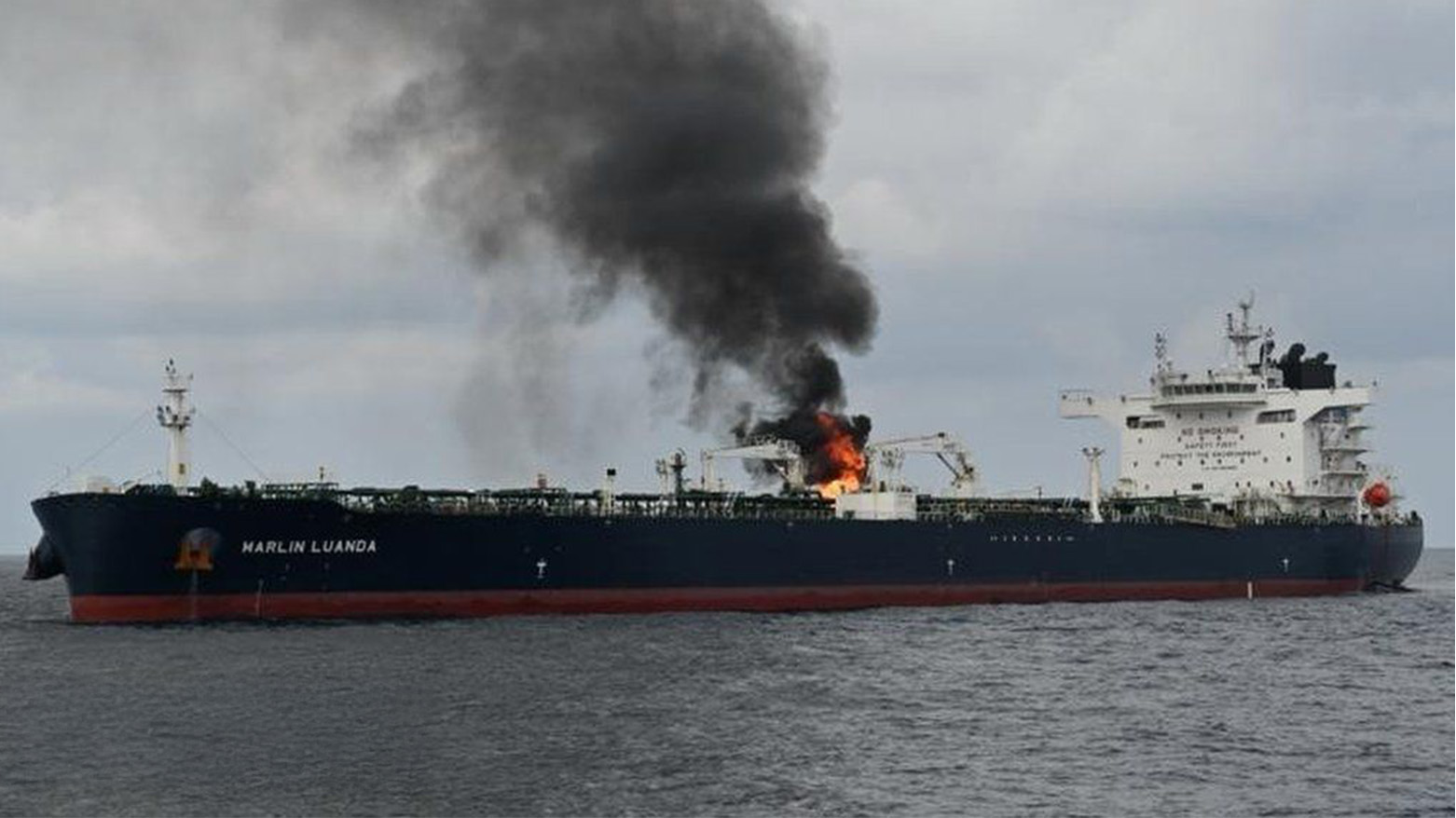Houthis Launch Attack on Dutch Cargo Ship in Gulf of Aden
The Iran-backed Houthis say the attack supports Palestinians in Gaza, as rising tensions over UN sanctions on Iran and Trump’s peace plan add new geopolitical pressure on the region.

ERBIL (Kurdistan24) — Yemen’s Iran-backed Houthi rebels claimed responsibility Wednesday for attacking a Dutch cargo ship in the Gulf of Aden, further destabilizing a region already under pressure from multiple conflicts.
The Iran-backed Houthis said the ship was targeted “because its owner company violated the decision to ban entry to the ports of occupied Palestine,” in a statement published by their Saba news agency.
The cargo ship MV Minervagracht was struck by a projectile on Monday, wounding two crew members and sparking a fire, according to its owner. It was the second time in recent weeks that the vessel was attacked.
British maritime security firm Ambrey reported that the same ship had been targeted on Sept. 23 while en route to Djibouti.
The Houthis, who control large swathes of Yemen, including the capital Sanaa, have framed their maritime campaign as part of their support for Palestinians amid Israel’s war in Gaza.
They have also launched frequent missile and drone strikes on Israeli territory, drawing Israeli retaliatory airstrikes on Yemen. On Thursday, at least nine people were killed in Sanaa when Israeli forces struck after a Houthi drone attack on southern Israel.
Trump’s Peace Plan and the Snapback on Iran
The escalation in the Red Sea comes at a moment of major geopolitical shifts. President Donald Trump has renewed efforts to push forward a controversial “peace plan” for Gaza, framed around forcing a ceasefire between Israel and Hamas while simultaneously reasserting U.S. pressure on Iran.
Last week, Washington succeeded in snapping back United Nations sanctions on Iran, citing Tehran’s nuclear and regional activities.
For Iran, the Houthis represent a strategic extension of its influence across the Arabian Peninsula, giving Tehran leverage over one of the world’s most vital maritime chokepoints.
Military experts suggest the Houthis are likely to intensify their attacks in response to the Gaza crisis and to demonstrate their alignment with Iran against both Israel and U.S. allies in the region.
By targeting international shipping, the rebels both signal their solidarity with Palestinians and raise the cost of global trade, forcing Western powers to reckon with their role in the conflict.
Risks of Escalation in the Red Sea
The Houthis’ strategy carries serious risks. The Red Sea and Gulf of Aden are crucial arteries for global commerce, with energy shipments and container traffic passing through the Bab el-Mandeb Strait daily.
If the Houthis persist in targeting commercial vessels, maritime insurers may sharply raise premiums, shipping companies may divert around Africa, and global supply chains could suffer fresh disruptions — reminiscent of the early days of the Ukraine war when Black Sea traffic was imperiled.
For the United States, a protracted Houthi maritime campaign complicates Trump’s peace push. On one hand, Washington is trying to rein in Israel and Hamas; on the other, it faces mounting pressure to secure international shipping lanes and prevent Iran’s proxies from expanding their reach. This dual challenge risks overstretching U.S. military and diplomatic bandwidth.
The Future of the Houthis
The Houthis now stand at a crossroads. If their campaign of missile, drone, and maritime strikes continues, they could provoke stronger Israeli retaliation, invite direct U.S. naval intervention, or even face new multilateral sanctions aligned with those already snapped back on Iran.
At the same time, their ability to disrupt trade gives them bargaining power, ensuring they remain a key player in any regional settlement.
However, the rebels’ strategy also risks alienating regional states, including Saudi Arabia and the United Arab Emirates, which have shown signs of easing hostilities in Yemen.
A return to heightened confrontation could derail fragile ceasefire efforts, deepen Yemen’s humanitarian catastrophe, and prolong the conflict’s spillover into global geopolitics.
The Houthis’ maritime attacks underscore the interconnectedness of today’s crises. What began as a local conflict in Gaza has ricocheted across the Middle East — reshaping U.S. policy under Trump, intensifying sanctions on Iran, and destabilizing vital shipping corridors.
If the Houthis persist, the Red Sea could become the next major flashpoint, threatening not just regional actors but also the stability of global trade and the credibility of international diplomacy.